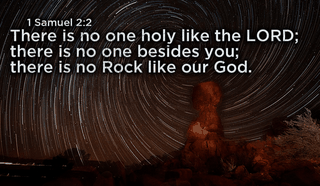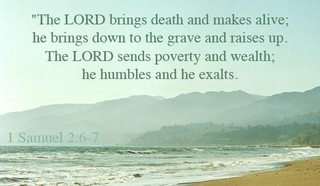- Recent Translations
- All Translations
1 Samuele 2:21
Share
Settings
1 Samuele 2:21 Meaning and Commentary
And the Lord visited Hannah
In a way of mercy, approving and confirming the blessing of Eli; or rather granting the blessing he prayed for, by giving her power to conceive, bear, and bring forth children, as the following words explain it:
so that she conceived and bare three sons and two daughters;
whereby the prophecy of Hannah was fulfilled, ( 1 Samuel 2:5 ) , and was no doubt matter of great joy to her, though of these children we nowhere else read, nor even of their names. Josephus F19 says, Elkanah had other sons by Hannah, and three daughters; which agrees not with the text:
and the child Samuel grew before the Lord:
in age and stature, in grace and goodness, and improved much in the worship and service of God, both in the theory and practice of it; or became great with him, high in his esteem and favour, and was blessed with much of his presence, and with large gifts of his grace.
F19 Antiqu. l. 5. c. 10. sect. 3.


